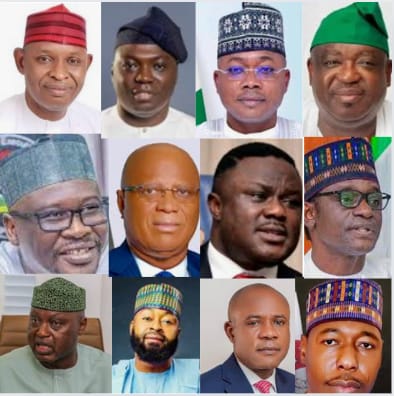
Twelve state governors have appointed a total of 4,835 aides since assuming office in 2023, despite concerns about the high cost of governance and rising debts. This move has raised eyebrows, especially considering the country’s economic challenges.
Section 196(1) of the 1999 Constitution empowers state governors to appoint aides to assist them in their duties. However, the large number of appointments has sparked controversy, with many questioning the necessity of such a large retinue of aides.
Some governors have appointed fewer than 50 aides, while others have appointed hundreds. For instance, Kogi State Governor Usman Ododo appointed 43 special assistants and 131 senior special assistants, totaling 170. Similarly, Yobe State Governor Mai Mala Buni appointed 24 special assistants, while Adamawa State Governor Ahmadu Fintiri appointed 50 special assistants.
The appointments have continued into 2024, with some governors appointing additional aides. For example, Plateau State Governor Muftwang appointed 204 aides in March, while Ekiti State Governor Biodun Oyebanji approved the appointment of 110 special assistants, senior special assistants, and technical assistants in April.
The debt profile of the states has also increased significantly within the first six months of the new governors’ administrations. According to the Debt Management Office, the domestic debt of Niger State increased from N121.95 billion to N139.80 billion between June and December 2023. Similarly, Plateau State’s domestic debt surged from N157.62 billion to N173.93 billion within the same period.
Experts have called for a reduction in the cost of governance and the pruning of unnecessary appointments to free up funds for development. The Chairman of the Nigerian Institute of Quantity Surveyors in Lagos, Olujide Oke, emphasized the need to cut needless spending and reduce the size of government appointees to channel funds into crucial areas for development.
